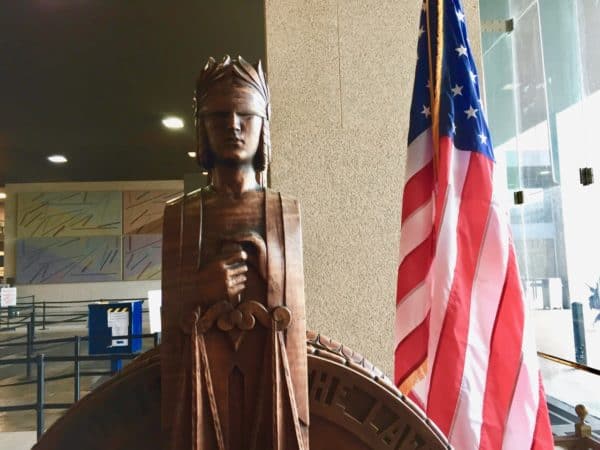
Lawyers for plaintiffs in a class action suit brought against cryptocurrency exchange Bitfinex in New York have declined to revise their complaint alleging the exchange used prints of a crypto-synthetic type of USD to, “creat(e) the largest bubble in human history.”
“Plaintiffs do not wish to amend their complaint at this time,” the lawyers write. “Plaintiffs reviewed Defendants’ pre-motion letter and decline to amend their complaint.”
The plaintiffs are currently seeking $1.4 trillion USD and state in their letter that actual damages will have to be determined in a “complex factual inquiry” involving a “battle of experts.”
Bitfinex is an offshore cryptocurrency exchange and sister company to Tether, makers of cryptocurrency “stable coins” that mimic real-world reserve currencies.
Tether has so far issued more than $4 billion “USDT” tethers. Many of these Tethers have been deployed through Bitfinex into global cryptocurrency trading systems to “add liquidity.”
Critics have long wondered aloud whether every USDT is backed by equivalent real-world USD held in reserve by Tether as claimed.
The NYAG has alleged the companies deceived investors and commingled funds.
According to the NYAG, lawyers for the companies have been obfuscating in court since April and have not yet turned over a single record.
The companies have countered that the request for records is onerous and has required them to employ the services of 60 lawyers.
In 2018, finance professors John Griffin and Amin Shams released a paper claiming that strategic issuances of tethers (synthetic USDs) by Tether were used to stabilize of the price of Bitcoin.
This was done, the researchers believe, to give the general public and institutions the impression that Bitcoin was an investing juggernaut. The price of bitcoins subsequently sailed up dramatically in the last four months of 2018- from about $3500 in September to $20 000 USD by December.
The current price of one Bitcoin is about $7300 USD.
According to the New York plaintiffs:
“From 2017 through 2018, Tether printed 2.8 billion USDT (and used it to flood the Bitfinex exchange and purchase other cryptocurrencies. This artificially inflated demand for cryptocurrencies and caused prices to spike….As the cryptocurrency market reached a fever pitch, Tether’s mass issuance of USDT created the largest bubble in human history.”
A more recent version of the paper Griffin Sham’s paper identifies a single account on Bitfinex as responsible for most of the key buys.
Tether and Bitfinex have claimed they were simply making large purchases on behalf of clients.
The lawyers for the class action plaintiffs in New York say that Bitfinex lawyers have falsely claimed that Griffin and Sham’s have “walked back their allegations” in their latest paper. They say, “the actual updates to the Griffin Report do not require amendment.”
Further:
“(T)he study still concludes that USDT was being used to manipulate bitcoin prices. But importantly, the updates go further than the original study in connecting the manipulation to a single entity, concluding that ‘one large player on Bitfinex uses [USDT] to purchase large amounts of Bitcoin when prices are falling and following the printing of [USDT].’ The study, which has been accepted for publication by the Journal of Finance, ‘strongly suggests Bitfinex executives either knew of the scheme or were aiding it.’ In fact, Professor Griffin has publicly told the Wall Street Journal that ‘[i]f it’s not Bitfinex, it’s somebody they do business with very frequently.'”
When a second class action suit against Bitfinex was launched in Washington state in November, Bitfinex used a blog post to warn would-be “mercenary lawyers” against launching any more “copycat” suits:
“As we predicted last month, mercenary lawyers continue to try to use Bitfinex and Tether to obtain a payday. To be clear, there will be no nuisance settlements or settlements of any kind reached. Instead, all claims raised across both actions will be vigorously contested and ultimately disposed of in due course. Once they are, Bitfinex and Tether will fully evaluate their legal options against those bringing and promoting the baseless claims.”
The suit in Washington reportedly does not rely exclusively on research by Griffin and Shams, but includes plausible research from other parties pointing to market manipulation.

